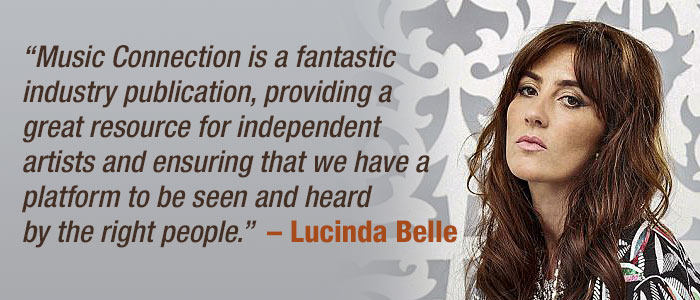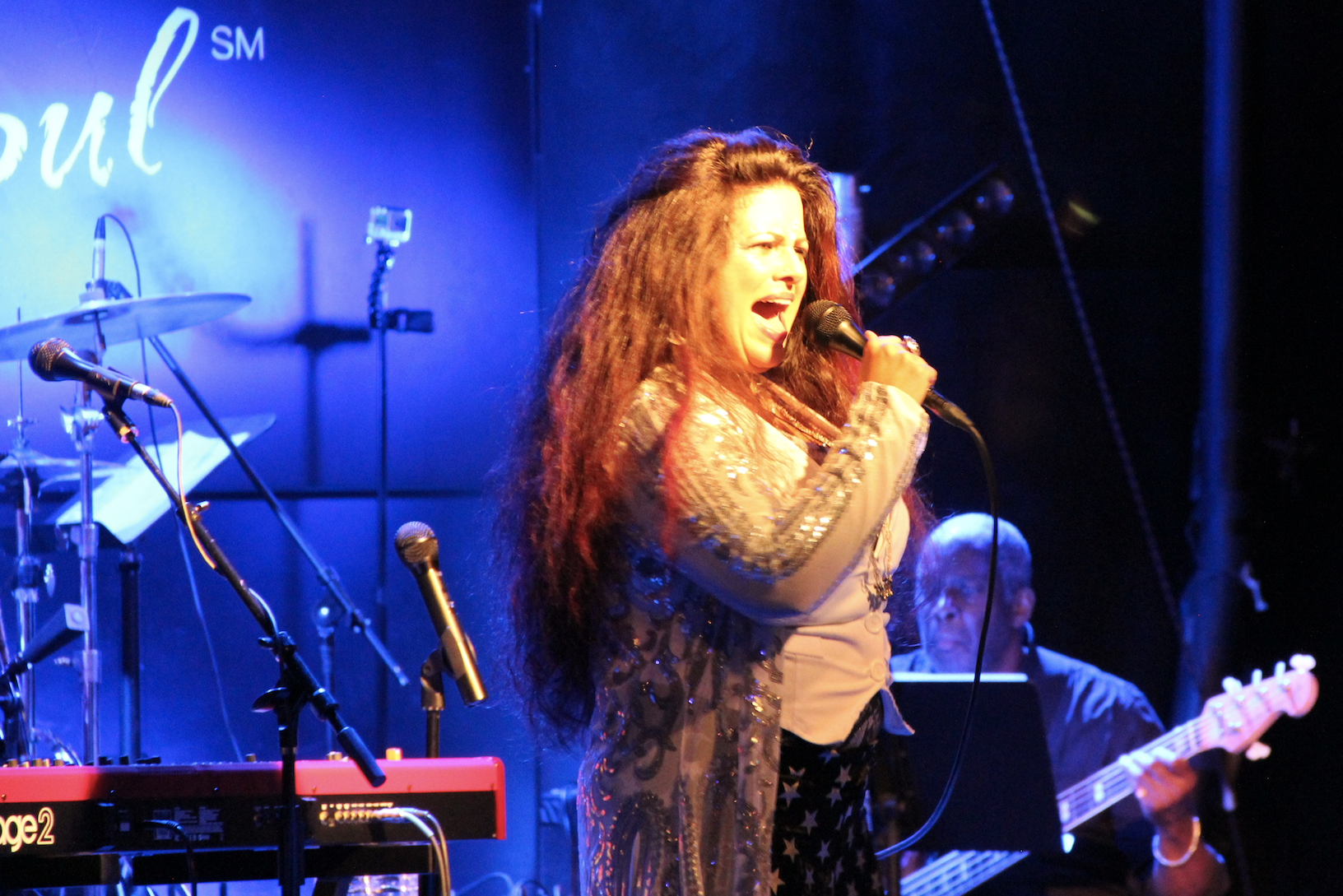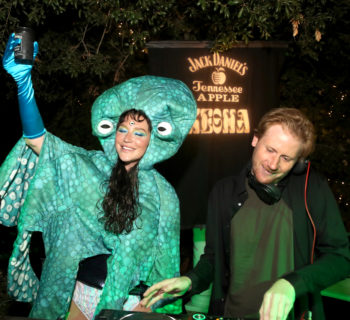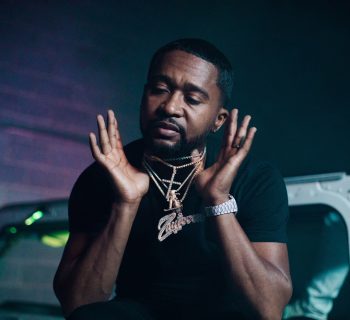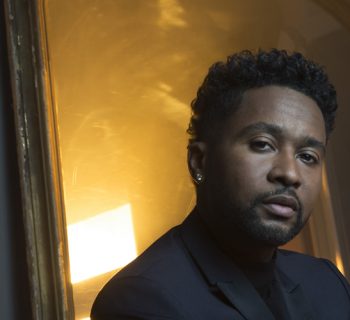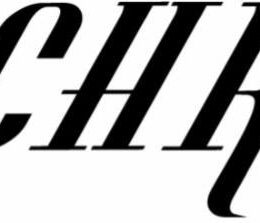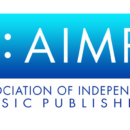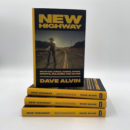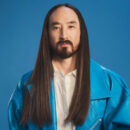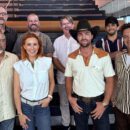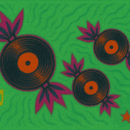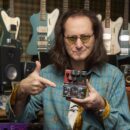When New Orleans fusion ensemble Tank & the Bangas released their Thinktank debut album in 2013, they were an entirely grassroots organization. The band members would sell the CDs themselves, they spent time touring in questionable vans, and they lived in cramped apartments. But through hard work and hard touring, their blend of soul, funk, jazz, hip-hop and rock reached a lot of ears.
Earlier this year, they put out the sophomore Green Balloon album, and they just got off tour with “bounce” rapper Big Freedia. It’s been a big, breakout couple of years, which already saw them win NPR’s Tiny Desk Contest with the 2017 single “Quick.” A song used on the closing credits of the Will Arnett adult cartoon Bojack Horseman took them to a wider audience again, and it looks like they’re ready to step up a level. We spoke to singer Tarriona Ball, aka Tank, about it all…
Music Connection: When did the band form, where and why?
Tank: We started in 2011 at an open mic night in New Orleans. It wasn’t every member that’s on the stage presently today, but we started at an open mic called Black Star Books and Caffe. We were just jamming out every week, and then we just wanted to know if we could take it on the road, if it was something that was contagious, if it wasn’t just something that only felt good in New Orleans. So we decided pretty early that we wanted to travel the world with our music, and that’s what we did.
MC: Where does that band name come from?
Tank: The band name came out of a pure mistake. My nickname is Tank. My dad gave me that nickname and it always has been since I was a baby. The open mic that we started at, at Black Star Books and Caffe, the house band there called themselves the Black Star Bangas. So since I started there with their band, I just shortened it to Tank & the Bangas. I never used to like it at all because I felt like I was kinda stuck with the name. But it’s definitely grown on me.
MC: Describe the style and sound…
Tank: I just don’t put it into genre, because you know what? It does its thing. I think it’s dynamic and big. It can be folk and melodic––folky, rock, hip-hop. It literally goes through all those phases. It’s like me, like a person. You’re not the same person you were when you were 12. You grow, you change––that’s exactly what the music does. It has a spirit of its own, because we’re all contributing to it. So I just think it’s pretty dynamic and beautiful. And big.
MC: Are the open mics a big thing in New Orleans?
Tank: It used to be really huge. There were open mics almost every night of the week. There probably still is, it’s just some of them are more popular than other ones. It used to be really big, where people come and do poetry there, just speak about their experience at work that week. A place to release and let go and find community amongst everybody that has like minds. It was really cool and very therapeutic for a lot of people. It really was, and still is.
MC: What do you think of the current state of music scene in New Orleans?
Tank: I think that the open mics are still popular right now. There’s one specifically that happens on Wednesdays that a lot of artists like to go to. From that scene, the creatives are doing a lot of cool things. Hosting things at their homes and backyards, like we used to do. The tourists are taking over New Orleans, so the artists as usual find their own hub to create and connect with each other. That’s what’s going on right now. I won’t speak about the places they do them at, because that’s how the tourists take over. We’ll keep that amongst the artists and the locals.
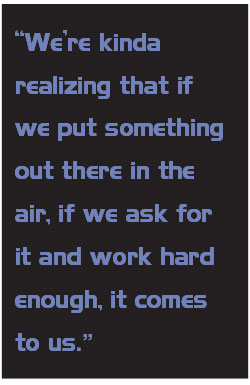 MC: Your second album, Green Balloon, came out this year––how do you think the group has evolved since the Thinktank debut?
MC: Your second album, Green Balloon, came out this year––how do you think the group has evolved since the Thinktank debut?
Tank: Oh wow, hugely. We all obviously matured more and changed. The music has literally matured and done its thing. I personally love it. When I listen to both albums, I just can’t believe the change and growth. Especially, when we came out, we were rushing to push out Thinktank. The day it came out we were so scared that the albums wouldn’t reach us. We all had 100 albums, and we sold those really fast. That’s all we could honestly afford to put out. We were doing everything in-house. So it’s so great to see the transition to this one. All of us love this album. It’s a great listen when you’re on the road, and we’re on the road a lot.
MC: There was a six-year gap between albums––what took so long?
Tank: Well, it wasn’t even like a straight-up delay. It was the fact that nobody knew who we were and we had to work our albums. It’s great for artists that put out music every week––that’s amazing for you. But when you have a band as big as mine is, we didn’t have time to put out an album every single week. We had to work the albums that we had. We had to literally work it until the wheels fell off of it.
It makes no sense to constantly go into the studio and make so many albums when nobody even knows the music––nobody knows the first album. So it may seem like it was a long time, but it was perfect timing for us. The moment that people got on Thinktank, we were touring with our album and they learned it, and now it’s time to present something new to you. Before then, you didn’t know who we were. It made no sense. We need to work the album that we made. I have no regrets about that.
MC: Which producers and engineers did you work with on the album, and how was that experience?
Tank: Jack Splash, who works with so many artists that we already respected. I think I had the most fun with him. He’s a little perky, cool and out for anything. Mark Batson is a true OG in the game; it was a pleasure just being in his presence. He worked with everybody from Dr. Dre to anybody. He’s really humble, so that was really awesome being with him.
And then Zaytoven—c‘mon, it’s Zaytoven. Gucci Mane’s friend. He was surprisingly very down-to-earth and very southern, like a church boy. It was really cool, creatively. The artists, we got the two that we wanted. Pell, who is a rapper from New Orleans and I kinda fell in love with him when we lived in London. I always wanted to work with him, so that was a dream come true. Alex Isley is an artist that we listen to all the time too. It was a dream working with her and we never thought that would happen. We just asked these people and they would say yes.
Of course, working with Robert Glasper—who would have thought that would happen? It was one of our dreams come true, this album. The people that we got—we’re happier with the second one because we’re kinda realizing that if we put something out there in the air, if we ask for it and work hard enough, it comes to us. Andre 3000 and Kendrick Lamar—I’ll put that out there. That would be amazing.
MC: Is there anybody else you would collaborate with, not just musicians but also producers?
Tank: You’d probably have to ask the other band members about those things. I don’t really think about producers. They think about producers. I think about art.
MC: What studio did you use to record Green Balloon?
Tank: Like, several honestly. We recorded a little bit in New Orleans, a little bit in LA, a little bit in Florida. I think that’s about it.
MC: And you didn’t consider the producers?
Tank: I love Mark Batson, Jack Splash and Zaytoven. But I don’t really sit down and think, “I wonder what producers I would love to work with.” I don’t really think of that, because my band are my producers. They produce our music, we produce our music together, so I don’t really have to think about a producer. We’re some New Orleans people who literally made everything ourselves and we didn’t have any money for no producers so it never was something that was on my mind.
MC: So overall, you’re pleased with the way it came out?
Tank: Oh, I love it. I loved it before it came out to people’s ears. I listened to it all the time. My family listened to it constantly before it even came out.
MC: Your song “Oh Heart” was used on the TV show Bojack Horseman—are you a fan?
Tank: I became a fan of it after the song was on the show. I really like it. I like adult cartoons. When I heard, I was all for it and it was perfect the way they put “Oh Heart” in it.
MC: You’re known as a hard-touring band. Do you enjoy life on the road?
Tank: Yeah, I enjoy life on the road, but it has its moments. Just like with anybody or anything you love, you need time away from it or you’ve got to go home to spend time with your boyfriend. You need to go home and be in your own space. I’ve been home for almost a month in New Orleans right now, with dates in-between. I’ve really enjoyed it, so now that we’re about to go back, I’ve got to get my mind ready. It’s a lifestyle––everything from what you eat, to your morning meditations, to working out, to vocally warming up. Living on the road can be cool, but it can also be like no joke. It’s a lifestyle. We’ve been doing it for so long that people don’t even know, because we did it before people even knew us.
MC: Do you write on the road? Do you find time to be creative?
Tank: Yeah, go on your phone or your notebook and write about anything. For sure.
MC: How do you maintain your voice, particularly playing in different climates around the country?
Tank: I just drink a lot of water. The venues have a lot of teas for me. It doesn’t help that I like to eat the most horrible food on the road. I definitely gotta watch that because that’ll hurt me. Gas stations and McDonald's—it’s the worst.
MC: You’ve recently been on tour with Big Freedia—are you a fan?
Tank: I’m stood in front of her watching her New Orleans shows right now—it’s so good. I love being on tour with Big Freedia. It’s intense. It’s hard to go on before or after Big Freedia, because we’re both such New Orleans people that we both are big entertainers. So it’s a lot of energy. The last time we went on tour, everybody got on stage all together, choir robes and big old gospel songs. It was amazing.
MC: How do you describe your live experience?
Tank: Spiritual, energetic.
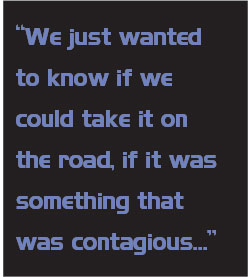 MC: You have as many live albums as studio albums—do you consider yourself a live band?
MC: You have as many live albums as studio albums—do you consider yourself a live band?
Tank: No, I don’t. I consider us to be our best anywhere we go, honestly, because I love being in the studio with the guys. It’s a great energy. When we created Green Balloon, I was honestly surprised at how good the energy was, because I was afraid that it wouldn’t be. It was so many musicians and we hadn’t made an album in so long. I didn’t know how it was going to be. On stage, it’s just honestly two different feelings, but I don’t put one over the other one. I really don’t, and I don’t think anybody else in the band would either.
MC:There are a lot of band members in the Bangas—individually, what do they each bring to the table?
Tank: Oh wow. Well, Norman [Spence, aux keys] has a humungous music directory in his brain. He’ll know any song. If you play something, he’ll know the root. You’ll be like, ‘How did you know that, man?’ He knows stuff like that, just out of the blue.
Albert [Allenback, alto sax and flute] is always willing to try absolutely anything, from salt and pepper shakers on stage to literally blowing up a balloon in the studio and seeing what type of sounds it makes, just to add to any song.
Josh [Johnson, drums] is always behind everything, putting it together kinda like a puppeteer. He’s like putting things together and pulling strings here and there, trying to get that feeling for the songs out of the guys.
Merell [Burkett, keys] is the best second-in-command type person. He’ll do anything that someone asks him to do on the keys, and he won’t complain about it or anything like that. He’ll surprise even himself because he’ll create some of the most beautiful melodies, but then he forgets them three seconds later. I’ll say, ‘What was that, Merell?’ and he’ll say, ‘I don’t know.’ I go, ‘God damn!’ We’ve learned to always keep a recorder on us any time anyone’s playing anything, because they will not remember it in the morning.
If I’m speaking about myself, I push the feeling and I remind people of, I guess, why we’re doing this, to always connect with the crowd and to keep the feeling going. Because feelings are the most magical things ever, because you can’t see them at all. You know they’re there and you feel it. It’s so incredible to me––somebody could be sad and you don’t even know it. I just like to push that forward. All together, we create something unexpected. That’s why people can’t describe the music, and neither can we.
MC: Have you started thinking about the next album?
Tank: Yeah, I’m thinking about it, for sure. I’m honestly waiting to get that time to be around people like Jack Splash and stuff, just so I can see. I know the feeling I want to give people, but I want to deal with these minds to see also what they have. But the moment that your new album comes out, we’ve been thinking about the next album before we even put out Green Balloon.
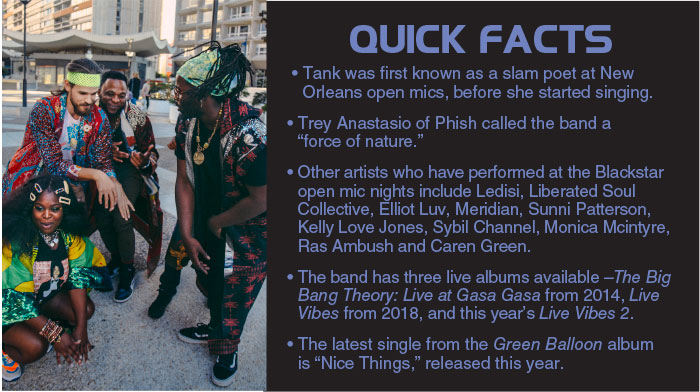
MC: How is your relationship with your manager and booking agent?
Tank: My manager, Tavia Osbey, is my best friend so we have a great relationship. She literally takes care of business, loads merchandise onto the van, picks up big heavy boards. She did all of that stuff before I had anything. She would do my hair, she drove on the other side of the street when we lived in London, she booked the little shows that we had, she sold the merchandise—she was everything.
Now we’ve slowly put together a team. Now we have somebody that sells merch, somebody who is a tour manager and booking agent. They’re really supportive. I believe that she and I made the right choices when it came down to connecting with other people besides our bandmates to help us get to the next level in our career. These people have become really important to us.
MC: You lived in London? That must have been amazing…
Tank: Yeah, we did. We all went out there to try to pursue something different, try to get our careers to the next level and see if the people across the pond were gonna be interested in our work, because we hoped that they did. Everybody kept telling us after we did our first festivals that, “Oh they’re gonna take you guys overseas after this––all the festivals overseas are going to come for you.” That never happened. We did all the major festivals in New Orleans––nobody came and asked us to go overseas. It finally hit us––oh we have to bring ourselves overseas.
So we hosted parties in the backyard, we got local groups to perform, and every show that we did we put in a bucket and we saved up. We bought plane tickets and we all went out together. We stayed in a two bedroom cramped-up apartment for three months. It was amazing. It was life transforming. It was hard. It was wonderful. It was a small space to sleep in, but we felt so blessed no matter what happened—flat tire, we bought an 18-year-old Japanese van that kept breaking down, but God kept covering us wherever we went. Even when it broke down, sometimes money would come from nowhere. We got care packages from our fans and friends at home, with New Orleans seasonings. It was awesome. We made friends so close, they came to New Orleans to visit us from London. It was amazing.
MC: So with the album out and the Big Freedia tour done, what’s next?
Tank: I have a tour coming up with Pell, Adia Victoria and Blackalicious. Besides that, everybody has to watch out.
Contact louis.dadamio@sacksco.com
